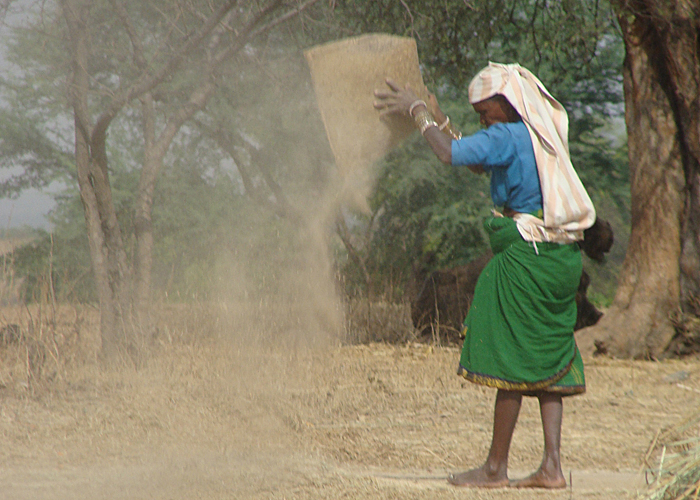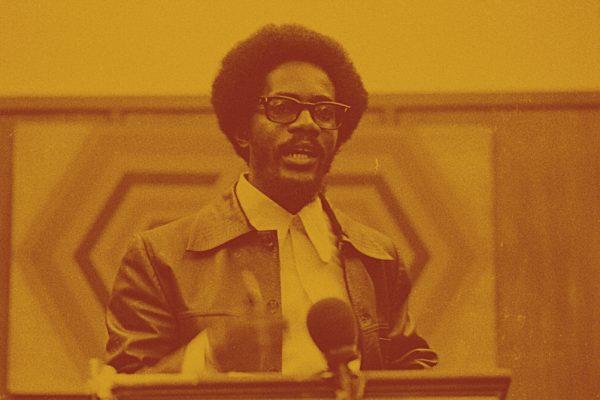In the last few decades, labor unions have become weaker everywhere. Increased global competition is eroding the revenues that capital used to share with organized labor, and the outflow of investments abroad—or even the credible threat of it—has made union positions precarious.
But in much of the developing world, non-governmental organizations (NGOs) have partly filled the gap by enrolling groups of (often informal) workers in microfinance and social-insurance programs, delivering health and education services, agitating against the abuse of human rights and environmental degradation, and empowering disadvantaged social groups such as women and indigenous people. Where unions stressed worker rights, the emphasis has now shifted to citizens’ rights to minimum dignity, livelihood, and socially guaranteed protection. This is a major advance in social movements over the narrow goals of union workers because the overwhelming majority of workers and peasants in poor countries do not belong to unions.
These movements have pressured many countries to respond in positive ways. India probably has the largest number of NGOs in the world, about 3.5 million by one estimate. Recent landmark legislations on the right to information, guaranteed employment on rural public works, and forest rights for indigenous people have been striking examples of the effectiveness of NGOs.
But tension between NGOs and state agencies is also growing. It has shown up in Bangladesh, where Muhammad Yunus, the Nobel Prize–winning founder of the microcredit lender Grameen Bank, was fired by the government for what he claims are mainly political reasons. China has arrested many NGO activists in its recent crackdown. In India social activists supporting the proposed National Food Security Bill are opposed by government technocrats, worried about the high cost of ensuring food security for everyone and the colossal theft and wastage in the current public food distribution system. Indian government ministers are also grappling with anti-corruption activist groups—sometimes headed by holy men in Gandhi caps or red robes, whose populist quick fixes and demands of summary punishments for corruption officials reject as unworkable. Protests—sometimes violent—against large dams, land acquisition for industrial and commercial development, and other development projects that displace people from traditional habitats and ways of life are now widespread in the developing world.
While social activist groups have rightly resisted many egregious abuses of state and corporate power, it is worth pausing to consider whether, particularly in democratic polities, the mantle of popular legitimacy they claim, really fits them, however corrupt and power-hungry the representative institutions and elected party politicians may be.
Activists who romanticize the poor should keep in mind that the horrors of capitalism fade in comparison with the horrors of pre-capitalism.
In the policy arena the groups often act as self-appointed lobbies for the poor and the oppressed. While this lobbying is at least as legitimate as that by trade unions, farmers’ associations, or chambers of commerce, such non-party organizations cannot and should not threaten to replace the role of traditional party organizations in a democracy. Voluntary groups, as single-interest advocacy lobbies, lack the mechanism of transactional negotiations and give-and-take among diverse interest groups that large party organizations, representing and encompassing those varied interests, possess.
This kind of give-and-take is particularly important when resolving controversial issues and requires complex trade-offs and balancing of diverse interests. Those who speak for the poor usually underplay the diversity among the poor and sometimes romanticize their traditional way of life. A dam may benefit thousands of small farmers in hitherto parched land, even as it displaces thousands of others; a development project may displace some from their ancestral land but provide jobs and more productive livelihoods for others; and so on. Each such case involves complex trade-offs and demands negotiated compromises and compensations across groups and over time. Such deliberations should take place within a party forum where diverse interests and stakeholders are represented; taking this step is often more productive for all concerned than mere one-sided agitations.
Democratic accountability can be further impaired when domestic NGOs line up support from international NGOs, which are usually less well-informed about local trade-offs but are financially and organizationally much stronger. There have been some cases where democratically elected local governments have been thwarted from constructing dams that would have provided irrigation for many small farmers. The activist opponents of the dams, taking up the cause of the displaced, mobilized their international anti-dam fraternity to protest at World Bank headquarters and with US Congressmen, compelling the World Bank president to cancel the previously promised large loans for dam construction without allowing for adequate hearing from the small farmers who might have benefited. Whether the dams should have been constructed is not the point. The issue is one of democratic accountability.
• • •
Activists who romanticize the pristine life of the poor and the indigenous, and ignore a great deal of misery and stagnation, should keep in mind that the horrors of capitalism fade in comparison with the horrors of pre-capitalism. To be sure, the citizens’ rights-based approach of the activists (as opposed to the dole approach of the welfare state) has much to commend itself. It serves to raise consciousness among the poor and the vulnerable about their entitlements, and remind them that they are not mere supplicants to politicians and bureaucrats. In a weak administrative and institutional context, however, the NGO approach of uncompromising support for citizen’s rights can cause more harm than good. If the structure for implementing some of these rights is weak and corrupt, then the rights are hollow and promoting them breeds cynicism.
Consider India, where courts have been active in taking on public-interest litigation brought by civil-society groups on behalf of the poor and the abused or the victims of environmental degradation. India is already littered with hundreds of unenforced or spasmodically enforced court injunctions, some of them on the implementation of rights. This proliferating judicial activism, egged on by the rights-based movement and the media, may end up, for all its good intentions, undermining the credibility and legitimacy of the judiciary itself.
The social activists share with left-wing unions a preoccupation with redistribution, and a lack of concern for generating enough surplus to enable it. There are obvious trade-offs here between incentives for private enterprise and the need for social justice. Faced with these issues, just as the Left might refer to the great things the state can do, social activists refer us to the great things small producers and community-based organizations can do. The small-is-beautiful communitarians often ignore the many cases of local communities tyrannizing minority groups (Forms of lynching reminiscent of the U.S. South continue today in the ethnic villages of Africa and India.) And small local producers often cannot benefit from economies of scale and technological upgrades or invest in high-risk-high-return projects, which require risk pooling with non-local entities. As a result, they remain on the margins, mired in low productivity. While there are scattered examples of dynamic small producers, they don’t represent a viable systemic alternative. When real capacity to create wealth is missing, social activism is often reduced to mere populism, which in the long run can be wasteful and counterproductive.
NGOs have many concrete achievements to their credit. But no cause is lofty enough to permit its missionaries to dismiss the complexity of issues involved in the problems they hope to remedy or the democratic mechanisms and experiments necessary for finding the best way forward for all parties. While I applaud the causes and admire the dedication of many of the activists, my praise often remains muted, when I consider all the limitations of the NGO movement.








